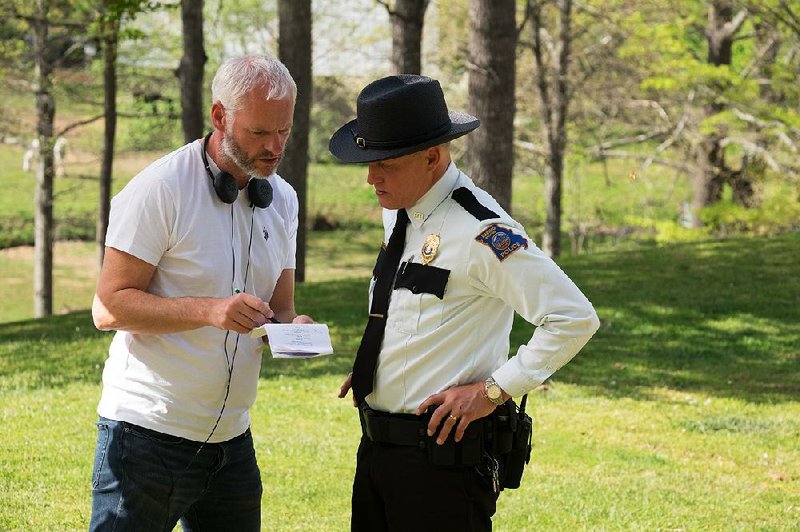In Three Billboards Outside Ebbing, Missouri, Academy Award-winning screenwriter and director Martin McDonagh infuses a story of heartland murder and vengeance with midnight-black humor, excitement, ghastly brutality, Hitchcockian tension and slashing social commentary, often simultaneously.
A longtime playwright whose bold, funny work has been produced internationally (including by the Guthrie Theatre), McDonagh knew that this revenge film wouldn't follow the stale eye-for-an-eye formula of the Taken and John Wick series.
"I wanted to write a film with a very strong female lead," he said. "As strong as humanly possible."
The film stars Frances McDormand as Mildred Hayes, a formidable, sarcastic single mother searching for a response to the brutal rape and murder of her daughter seven months earlier. With no leads, suspects, evidence or clues, Ebbing's small police force has developed no case. But it has created a ferocious critic in Mildred, who commissions three billboards to put the squad's beloved leader under shameful public interrogation: "Raped while dying and still no arrests. How come Chief Willoughby?"
With a rich cast including Woody Harrelson as the straightforward chief and Sam Rockwell as his loose-cannon, mama's boy deputy, the film shows the gritty battle of wills as each side acts up, and acts out, in all its dramatic and moral complexity.
McDonagh saw similar billboards on a road trip across the country a decade earlier, he said.
"The idea of the rage and pain that would prompt that kind of action just stayed with me. And once I decided that the person who'd done that was a mother, Mildred kind of popped out and the rest organically fell into place.
"The police would react, and then she would react, and then everything began to escalate. It came with its own surprise to me."
One matter was clear from the beginning, he said. "I had Frances in my head. This was completely written for Frances. Even now, I can't imagine anyone else playing the part."
Mildred is the polar opposite of McDormand's Oscar-winning Fargo role as kindly Police Chief Marge Gunderson, the ideal Minnesota Scandinavian. McDonagh transformed her into a woman whose life has lost all meaning and purpose. For Mildred, there's nothing left to live for except finding and maybe personally killing the culprit.
Calling on McDormand to reverse her iconic role was common sense, he said.
"She's one of the best actresses of her generation. And she's also not very Hollywood. She doesn't buy into that movie star thing. You couldn't have a movie star in this role," which travels to very dark places and requires a performer whose integrity and humanity hold a sense of hope.
"She's still kind of a tough cookie in Fargo, although she's quite sweet-natured."
Here, McDonagh knew she could deliver an aggressive tone "that wouldn't let audiences off the hook. She'd never sentimentalize her. Because that's not what the story's about. She's not a simple hero."
As McDonagh's film goes forward, it leads viewers beyond the point where it's easy to assume that Mildred must be a virtuous woman to be taking such drastic actions. This avenger may in some ways be looking for revenge as a way to cover up and heal her own moral faults.
She's not evil, but she does some abhorrent things, throwing metaphorical and physical bombs to get the police back to work.
McDonagh turns from our initial feeling that the people Mildred is striking out against can't be without guilt. Gradually we begin to see that, to some degree, maybe they are innocent. By the film's surprisingly uplifting ending, we feel that maybe they can become that.
McDonagh said it's no easier to create a distinct female protagonist on the stage than in film.
"I think as men, it's natural that the first thing you write is a version of you. When I was 30 years old, I'd be writing from a 30-year-old man's perspective. There was a joy in writing Mildred's character that was greater than any of the other characters I've written up until this point" in his films Seven Psychopaths and In Bruges.
"She was so outrageous and forceful I never knew what she was doing from one scene to the next. I think that's what kind of cuts across in the movie, too. As tough as she is, there's a kind of joy to her outrage."
MovieStyle on 12/01/2017
